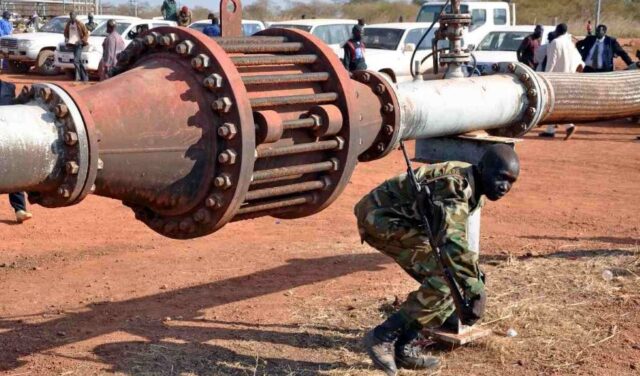
(3 Minutes Read)
South Sudan is facing an economic meltdown as the war in neighboring Sudan continues to disrupt its oil exports, the International Crisis Group (ICG) said recently.
Income from oil is not only critical to keeping South Sudan’s factious elites together, it said, but is also the government’s main source of revenue. The landlocked country, which seceded from Sudan in 2011, remains reliant on its northern neighbour’s port to get its oil to the international markets.
But one of South Sudan’s two pipelines to the coast, responsible for about two-thirds of its oil exports, broke down in February and is expected to be out of action for months. The ICG said the consequences for South Sudan will be dire. The government will run out of money and the national currency’s value will plunge.
Chronic food shortages will worsen, which could lead to renewed instability and fighting in the already fragile country. In addition, hundreds of thousands of people have fled the civil war in Sudan to South Sudan, which cannot feed those who already live there.
A staggering 7.1 million of South Sudan’s 12 million-strong population are acutely hungry, while cross-border trade with Sudan has ground to a halt.
As preparations lag for elections due to take place in December, the first since independence, the country’s leaders face a range of challenges. This included a weak economy, rampant corruption, catastrophic floods, and deadly clashes in much of the countryside.
Read Also:
https://trendsnafrica.com/african-leaders-pledge-support-to-south-sudan-to-end-conflict/
https://trendsnafrica.com/south-sudan-president-warns-against-extension-of-elections/
It is the damaged pipeline and its financial impacts that pose the most immediate threat to South Sudan’s peace. The ICG said regional and global partners should prepare to send emergency relief to South Sudan while redoubling efforts to end the war to the north.










